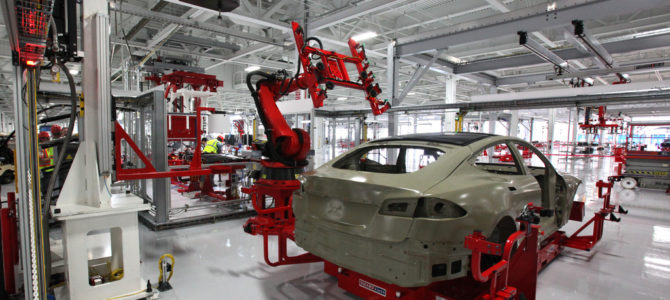One overlooked consequence of the federal shutdown is that it weakened the historically strongest appeal of a mid-level government job: stability. Employment in the federal bureaucracy has been a pathway to the middle class, so making federal employment less attractive could worsen concerns about slow middle-class wage growth and declining economic mobility. As the job market changes, Republicans need to look at how to ensure that there are accessible pathways to the middle class.
Like it or not, conservatives must grapple with the fact that the era of abundant high-paying, low-skill manufacturing jobs is over. Over the last 60 years, the number of manufacturing jobs has shrunk dramatically as a share of overall employment. Recently, manufacturing employment has seen a bump—thanks to overall strong economic conditions rather than a resurgence in the industry. But that doesn’t mean it’s going to last when technology is advancing at lightning speed. As Kyle Smith of National Review put it, the world economy is not going to “bow to your needs.”
Instead of pushing for the revival of a dying job sector, conservatives should look at what options less-educated workers—who have faced the slowest wage growth in recent decades—are offered in the modern economy. Conservative writers Ross Douthat and Reihan Salam have argued that the future of work for people without a college education lies in craftsmanship: mid- to high-skill manual jobs that are difficult to automate. This makes sense, because technical and service jobs are increasing as a share of the job market.
But right now, it’s absurdly difficult to break into this sector. Government policy often makes it nearly impossible for lower-income people, thanks to burdensome and unnecessary occupational licensing requirements. Today, almost 30 percent of jobs in the United States require licenses, as opposed to just 5 percent in the 1950s. These licenses can require bachelor’s degrees, thousands of dollars in fees, and hundreds of hours of additional education and exams—all before performing services such as carpentry, drywall installation, or HVAC repairs.
Supporters say these licensing regimes protect consumer safety, but this justification falls apart under closer scrutiny. Almost every single state requires more than a year of training before someone can become a cosmetologist, and 49 states require a four-year college degree before someone can work as an athletic trainer. Meanwhile, most states license EMTs after they have completed roughly a mere month’s worth of training.
Ultimately, these laws really exist to enrich current workers who want to avoid competition. But this hurts the economy as a whole. According to University of Minnesota economist Morris Kleiner, occupational licensing laws reduce the size of the economy by $203 billion a year, and prevents the creation of 2.85 million jobs in the U.S. economy.
Despite a strong few years of economic growth, labor force participation is still stagnant, and reducing the barriers to entry imposed by occupational licensing would make it easier for people to re-enter the workforce, unlocking an untapped source of potential. Using the federal government’s antitrust power to break up state licensing boards is just one example of an occupational licensing reform that would grow the economy while increasing economic mobility.
Of course, occupational licensing reform is not a panacea for middle-class woes. Curbing rising health-care costs and reforming local zoning restrictions to lower housing prices are also important policies that can raise living standards and reduce income inequality. But amid internal debate among conservatives regarding free market economics, as well as the leftward shift of the Democratic Party, occupational licensing reform can unite those concerned about government regulatory overreach with those worried over rising social inequality. The way to strengthen the middle class isn’t to turn away from free market economics, it’s to open up markets to more Americans, no matter their station in life.









